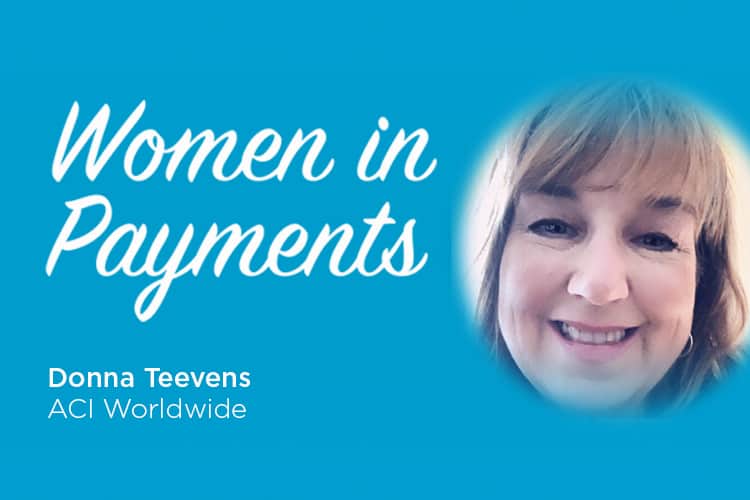A relentless advocate for diversity and inclusiveness in the payments industry, Melissa has been an active voice in the recent public debate around the UK Gender Pay gap legislation. She has also been instrumental in the growth of ACI’s Coding for Girls initiative, bringing the program to the UK in 2018.
I recently spoke to Melissa about women in payments.
Nidhi Alberti: First off, Melissa, congratulations on your win! You make us proud.
How does it feel to be named an “Advocate for Women”?
Melissa McKendry: Initially it was a complete surprise; however, since the reality has set in, it’s beyond exciting! I felt so honored to receive the award, but I know I couldn’t have done it without all the support from my colleagues and others who have helped along the way.
NA: What is your view on the gender imbalance in the payments industry?
MM: I think it’s important to note the difference between equal pay and gender pay. Equal pay means employees carrying out similar work receive the same level of pay, regardless of their gender. On the other hand, instead of comparing like roles, gender pay looks at the average pay for males and females in an organization. The main reason behind the gender pay gap for most companies across the UK is the lower proportion of women in senior roles. The global payments software market has historically been male-dominated. Many of the highest-paying occupations in our business are highly technical and currently are more often pursued by men. We need to do everything we can to push women to pursue those occupations, and that’s the main reason I’m behind ACI’s Coding for Girls event in the UK. Girls must be taught at a young age that coding and programming is not scary and unlike the reputation that precedes coding, it’s a creative job.
NA: Tell us more about Coding for Girls in the UK; how has the program been received by the students and their parents?
MM: The response has been very rewarding. The students love the event, especially its focus on career opportunities available and how this balances with their other interests. At the end of the event, most students are keen to build on what they learned, and the first question typically is, “when is the next level of this course available?” Most parents welcome the opportunity for their children, but are in disbelief over the fact that it’s a free event and provides great content and career visibility for students. In the most recent Coding for Girls event in the UK, parents asked if we had the ability to offer a more regular after-school class considering most schools do not have the numbers to make it financially viable, or the facilities and skills to offer a more regular-structure class. In fact, we have recently been asked if we can work with some of the local colleges if only to help with career advice, which we’ll plan to do eventually.
NA: Tell us more about your role as an ‘advocate for women’ at ACI; what are some initiatives you’ve worked on, or plan to work on?
MM: I personally do not think I do anything special other than remaining aware of the environment we are in and ensuring the best person for the job is considered regardless of their gender. I get asked for advice and guidance from many, and my approach is to provide support and direction over resolution to ensure the learning opportunity is leveraged. If there are gaps out there where women are not being considered or given the same opportunities, I will be the first to voice my opinion to convince others that it must be the right opportunity with the right value.
NA: During discussions at the UK Symposium back in March, what were some of the key challenges and/or opportunities identified for women in the payments industry?
MM: Some of the big agenda items at the Symposium were work-life balance, equal opportunities and recognition for women in the payments industry. Many women leaders talked about looking for the best opportunities for their careers, taking calculated risks where necessary to ensure they are successful at work without compromising on their family lives. In parallel, these women balance their personal circumstances with their partners by sharing parenting duties and adjusting work hours to meet the work-life balance that a family needs. Technology and the modern workplace are bringing much more awareness and opportunity for women and men to take advantage and be successful in their lives at work and at home. The one key message I hear from successful women leaders is their ability to sell their skills to a role – some through demonstrating in previous roles, and others by just believing in themselves and letting go of doubts such as, “I do not have the experience, but can I do that?” Trusting your own ability and selling this confidence is a success factor – many men do this naturally and women are now realizing this and acting appropriately.



